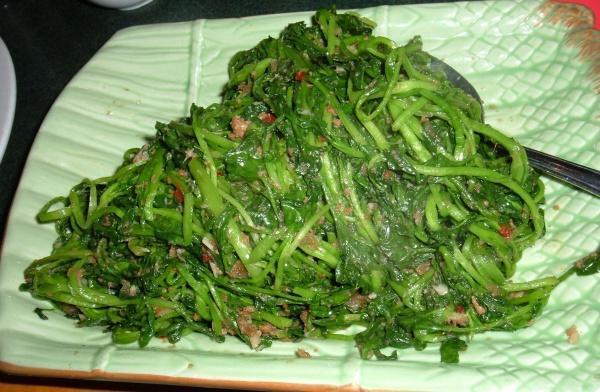Daniel Teoh stresses upon the importance of freedom of expression with regards to Malaysian minorities.
It is difficult to be optimistic when reading about Malaysia in the media, whether new or old. Worry seeps in when both sides seem to be pushing back and forth.
Two most recent issues – “Allah” and “kangkung” – serve as a litmus test of how things are in our country, but what sends a chill down the spine is that they also seem to indicate what things could be.
On the “Allah” controversy, one party is seen as challenging the other. On the “kangkung” fiasco, a young, first-term assemblyperson provoked rallies in response when he held one featuring a model of the PM.
A lot of arguments were submitted in the former. They could be categorised as religious and legal propositions. Without going into their merit, the arguments seem largely ineffective in convincing the majority who simply felt the word to be theirs.
Perhaps years and years of Islamic studies, as embedded in the national education syllabus, has come to fruition. If that be so, could a passionate, meritorious and temporary argument serve to sway? What would you do when confronted by an argument completely contrary to what has been taught over the years?
The “Allah” issue is controversial enough without political hands manning its wheel. The civilised world looked at our fighting over God’s name with amazement. They find it difficult to understand. They do not know Malaysia as we do, that here religion is also politics, and politics, religion.
Here goes an observation that hopefully helps the minority in the “Allah” issue to fight for their right in a different way and on a different day: It is a silly waste of money, time and temper to try and compel a powerful majority to do what they are determined to not want to do. (Du Bois)
That would seem to suggest that going to court over a religious/political ploy is a bad idea.
The “Allah” issue represents politics and religion; the “kangkung” one represents politics and race.
It is not the first time a first-term elected representative has made things more difficult for Pakatan Rakyat, namely DAP, especially when it comes to endearing the party to Malay voters. The move to amend a Selangor Enactment, also linked to the ban on certain words, by three YBs from said party, comes to mind. With the exception of Lau Weng San, the remaining YBs are first-timers.
Such an argument cannot proceed without addressing its moral opponent. The trio are defended by supporters contending that what they are doing is correct in principle, and thus stand on the moral high ground. Doing what is correct in principle is more important than the business of winning votes. That is the main thrust.
Not missing on the action is another first-time PKR assemblyperson, Lee Khai Loon who irked feelings when he staged a flash mob in response to the PM’s celebrated “kangkung” remark. The highlight of the gathering was the act of stuffing the vegetable into a model of Najib, which was deemed offensive and biadap (rude).
Lee was defended by the freedom of expression argument. The route of that argument, with the usual citation of constitutional provisions, should be familiar to fellow Malaysians.
Whether it is the Selangor trio or Lee, they have been labelled as rude and racists and part of a chauvinistic DAP strategy to take over the country.
No doubt DAP is an easier target. The party has never had much success with Malay voters, especially in rural areas. With the party’s image of having young professionals and acclaimed minds in its leadership, it is puzzling as to why it is always caught in a standoff against Malay-Muslims.
Clearly, being a professional elite without political experience means little in manoeuvring Malaysian politics.
Elected representatives are a close reflection of their supporters. All the way from the 505 General Elections, moderate Malaysians have been slightly uncomfortable with the raucous behaviour of PR supporters. Coupled with ignorance of the Malay psyche and niceties, they make for easy shooting by the likes of Utusan.
While Utusan and company are no credible Lois Lane – far from it – they have their fingers on the pulses of rural Malays.
Lee’s flash mob came after the fanfare on the social media ridiculing the PM. Malaysia even made the British news. Perhaps it was a joke for many of us, but it could also trigger what the Malays call sakit hati (heartache).
Was the flash mob crowd all non-Malays? Was the program carried out in a different language, maybe Mandarin or some dialect?
When was the last time you made someone sakit hati?
An admission that the group comprising Chinese, Christians and Catholics, all middle-class, speaking little to no Malay in daily lives, have shallow understanding of the Malay psyche and niceties, would be mutually helpful.
Malaysians ought to strive to give others a chance to shake off the pincers of prejudice, whether new or old, designed or accident.
It is commonplace in a developed democracy for people to demand their rights. Minorities often face a difficult, but not impossible, task in getting their voices heard.
Yet Malaysia is but a guided democracy. If any minority were to assert its right, it should be done with tact and understanding. The more elite and affluent that minority, the less it understands those who are not. The less it understands, the hotter it gets.
The temperature of happenings in Malaysia has been too hot for too long, no? Or is it going to see red?


Nice!